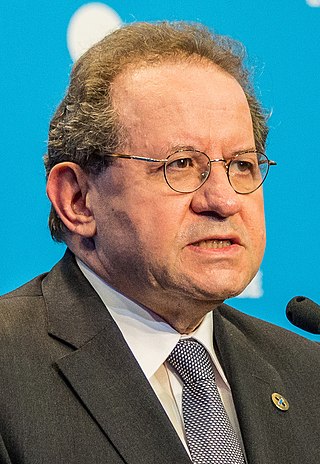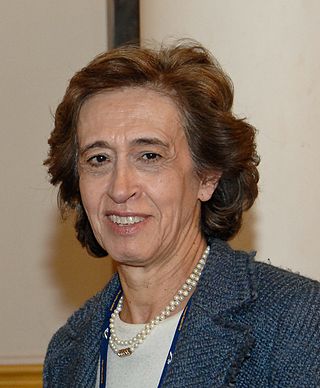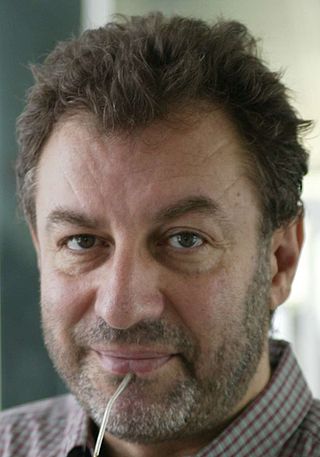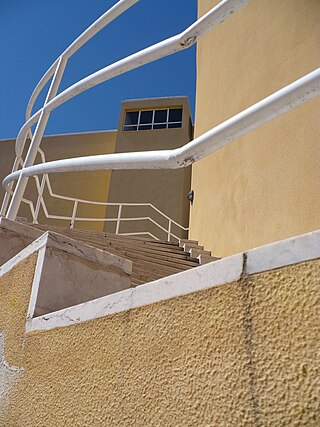
The University of Lisbon is a public research university in Lisbon, and the largest university in Portugal. It was originally founded in 1911, but the present structure of the university dates from the 2013 merger of the former University of Lisbon (1911–2013) and the Technical University of Lisbon (1930–2013).

Vítor Manuel Ribeiro Constâncio is a Portuguese economist and academic who most recently served as Vice President of the European Central Bank, from 2010 to 2018. He previously served as Minister of Finance in 1978 and Governor of the Bank of Portugal from 1985 to 1986 and from 2000 to 2010.

Francisco Anacleto Louçã is a Portuguese economist and politician.

NOVA University Lisbon, or just NOVA, is a Portuguese public university whose rectorate is located in Campolide, Lisbon. Founded in 1973, it is the newest of the public universities in the Portuguese capital city, earning its name as the "New" (NOVA) University of Lisbon.

The Technical University of Lisbon was a Portuguese public university. It was created in 1930 in Lisbon, as a confederation of preexisting schools, and comprised the faculties and institutes of veterinary medicine; agricultural sciences; economics and business administration; engineering, social and political sciences; architecture; and human kinetics.

Maria Manuela Dias Ferreira Leite is a Portuguese economist, pundit and retired politician. Ferreira Leite served as Minister of Education in Aníbal Cavaco Silva's third government, from 1993 to 1995, and as Minister of State and Finance in José Durão Barroso's government, from 2002 to 2004.

The economy of Portugal is ranked 34th in the World Economic Forum's Global Competitiveness Report for 2019. The great majority of the international trade is done within the European Union (EU), whose countries received 71.4% of the Portuguese exports and were the origin of 74.6% of the Portuguese imports in 2020. The Portuguese currency is the euro (€) and the country has been a part of the Eurozone since its inception. Portugal's central bank is the Banco de Portugal, which forms part of the European System of Central Banks, and the major stock exchange is the Euronext Lisbon.

Nuno Paulo de Sousa Arrobas Crato, GCIH, GCPI is a Portuguese university professor, researcher, applied mathematician, economist, and writer. For many years, Crato was a researcher and professor in the United States. Back in Portugal, he taught mathematics and statistics at the ISEG/Technical University of Lisbon, now University of Lisbon, while pursuing his research in stochastic models and time series. He also published many articles and participated in events of science popularization and for the history of science. In June 2011, he was appointed Minister of Education, Higher Education and Science, in the cabinet of the Portuguese Government led by Pedro Passos Coelho, serving through the end of Coelho's government in 2015. He was three times awarded a national medal from the President of the Republic, as commander (2008) and with the grand cross (2016) of the Order of Prince Henry the Navigator, which is the highest grade given to a national figure. Lastly, as grand cross of Order of Public Instruction (Portugal) (2022), which is the highest grade of this order. He has lived and worked in Lisbon, Azores, the United States and Italy.

The Catholic University of Portugal, also referred to as Católica or UCP for short, is a concordat university headquartered in Lisbon and with four locations: Lisbon, Braga, Porto and Viseu. Besides the four centres in Portugal, UCP also has the University of Saint Joseph in Macau as its affiliate.

The Lisbon Theatre and Film School of the Polytechnic Institute of Lisbon inherited the function of the National Conservatoire, founded by Almeida Garrett, in 1836, and of teaching Film, introduced in the same establishment since 1971. The main goal of the Lisbon Theatre and Film School is training in the fields of Theatre and Cinema. Sometimes it is still referred to by its former designation "Conservatório Nacional". It is a public institution of higher education created in Lisbon but now located in Amadora, Portugal.

Maria Luís Albuquerque is a Portuguese politician. She served as Minister of State and Finance between 2013 and 2015.
Vítor Augusto Brinquete Bento is a Portuguese banker. He was the CEO of the Portuguese bank Novo Banco since August 4, 2014 until September 13, 2014, when he announced his resignation. He was replaced by Eduardo Stock da Cunha.

Carlos Nuno Castel-Branco is a prominent Mozambican economist.

Mário José Gomes de Freitas Centeno is a Portuguese economist, university professor, and politician. From 2015 to 2020, he was Minister of Finance of Portugal in the government cabinet of Prime Minister António Costa of the Portuguese Socialist Party (PS). He was the president of the Eurogroup and chairman of the board of Governors of the European Stability Mechanism from 2018 to 2020. Previously, he was a board member economist of the Bank of Portugal. On 9 June 2020, he announced his resignation from the Ministry of Finance, effective 15 June. On 16 July 2020, the Council of Ministers approved Centeno's nomination for the post of Governor of the Bank of Portugal, put forward by his successor as Finance minister, João Leão. Centeno is the author or co-author of several scientific publications, books and book chapters related to his areas of interest, such as labour economics, econometrics, microeconomics and contract theory.

Pedro Manuel Dias de Jesus Marques is a Portuguese politician of the Socialist Party (PS) who has been serving as Member of the European Parliament since 2019. He is currently the vice-president for the Group of the Progressive Alliance of Socialists and Democrats in the European Parliament. He previously served as Secretary of State for Social Security, between 2005 and 2011, and as Minister of Planning and Infrastructure in the government of Prime Minister António Costa, between 2015 and 2019.

Manuela Porto was a Portuguese actor, writer, journalist, theatre critic, and translator, as well as a leading campaigner for women's rights and an opponent of the Estado Novo dictatorship in Portugal. As a translator she introduced previously untranslated women writers to Portuguese readers, including Louisa May Alcott, Anne Bronte, Elizabeth Gaskell, and Virginia Woolf. She is also credited with popularising the work of the Portuguese poet, Fernando Pessoa.

Sandra Cunha was a deputy in the Portuguese Assembly of the Republic as a member of the Bloco de Esquerda. She resigned in April 2021. Before joining parliament, Cunha was a part-time assistant professor at the Instituto Superior de Economia e Gestão. As a lesbian, Cunha was among the winners of Portugal's Arco-íris (Rainbow) award in 2018 in the category "Coming Out".

Pedro Nuno de Oliveira Santos is a Portuguese economist and politician, who is the Secretary-General of the Socialist Party. Santos previously held positions in the Portuguese Government under António Costa, first as Secretary of State for Parliamentary Affairs, from November 2015 to February 2019, and afterwards as Minister of Infrastructure and Housing, from February 2019 to January 2023.
João Manuel Oliveira Rendeiro was a Portuguese banker, entrepreneur and university teacher. He was the founder of the Banco Privado Português.
Vítor Manuel Álvares Escária is a Portuguese economist, specialized in European funds, and politician.
















